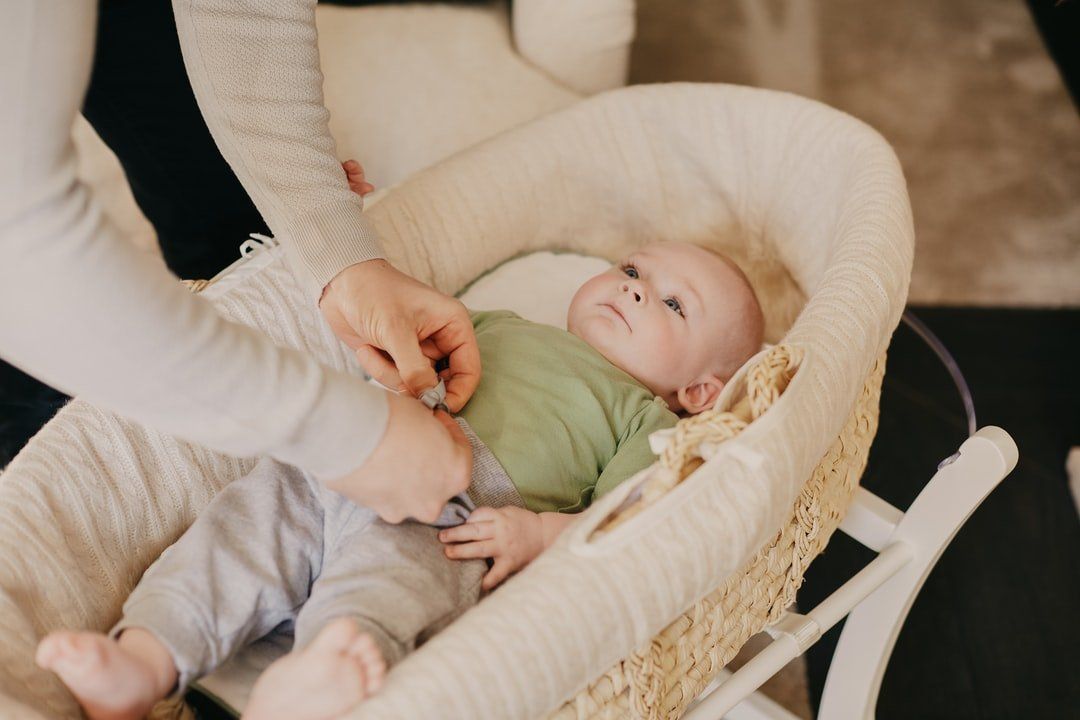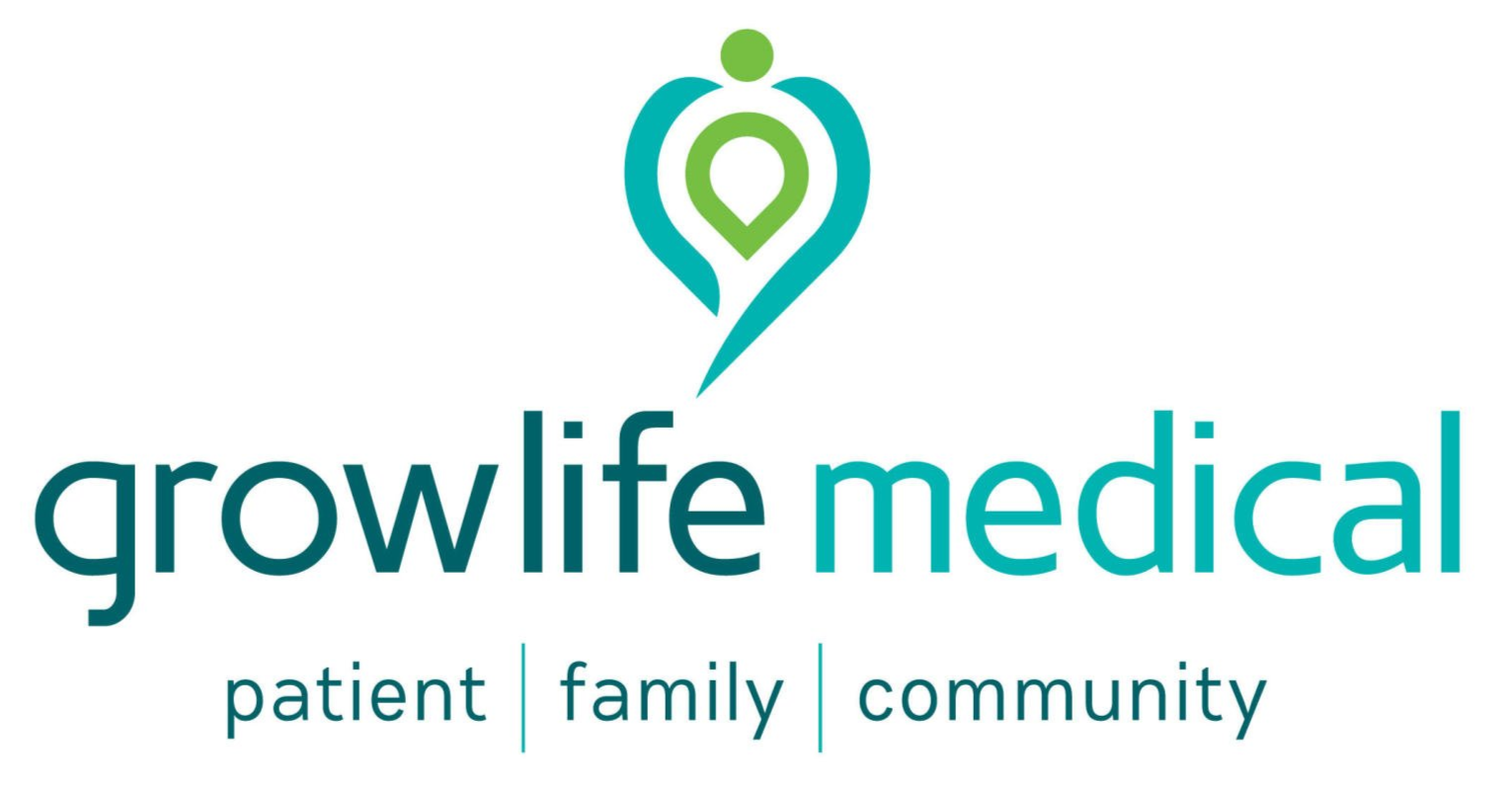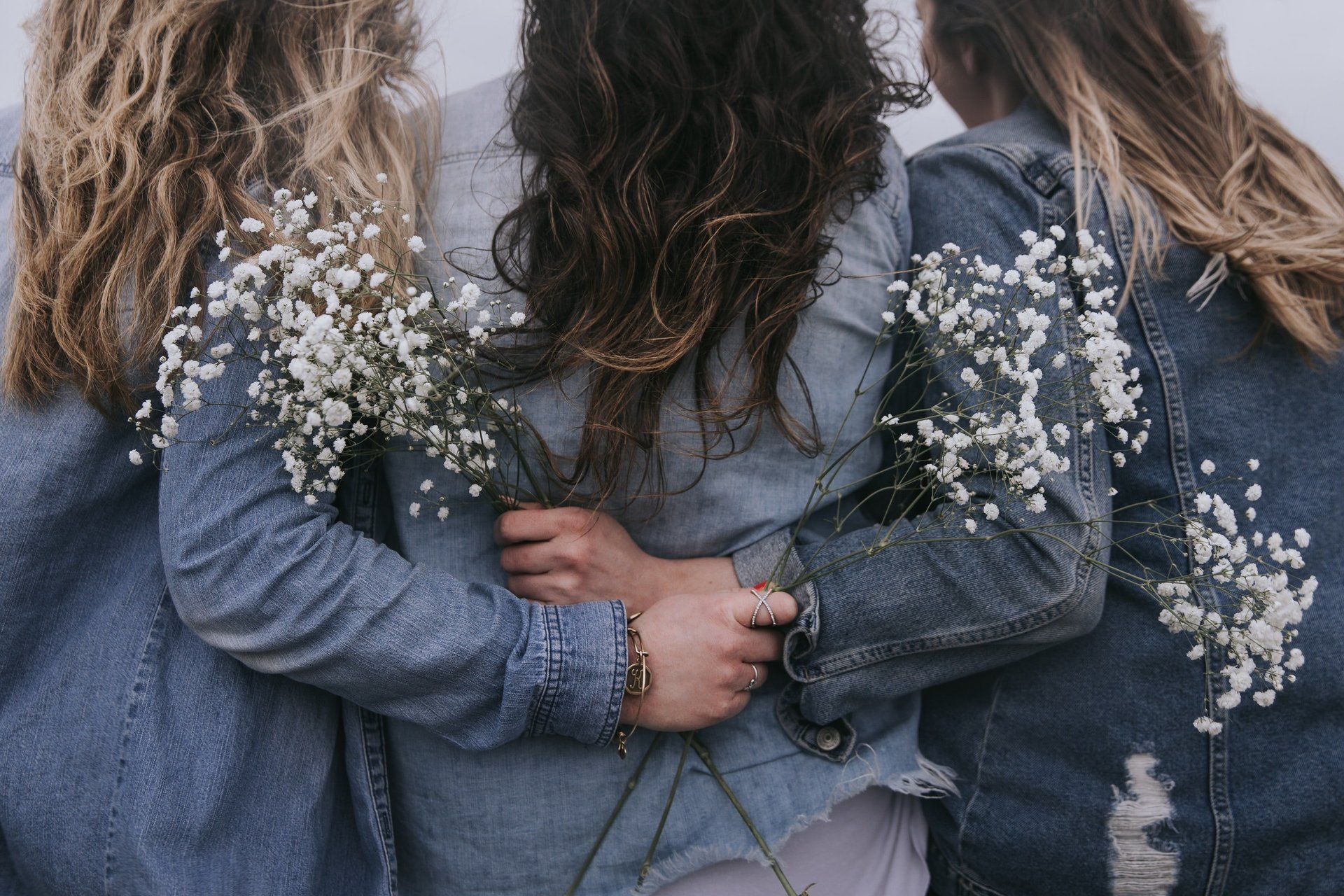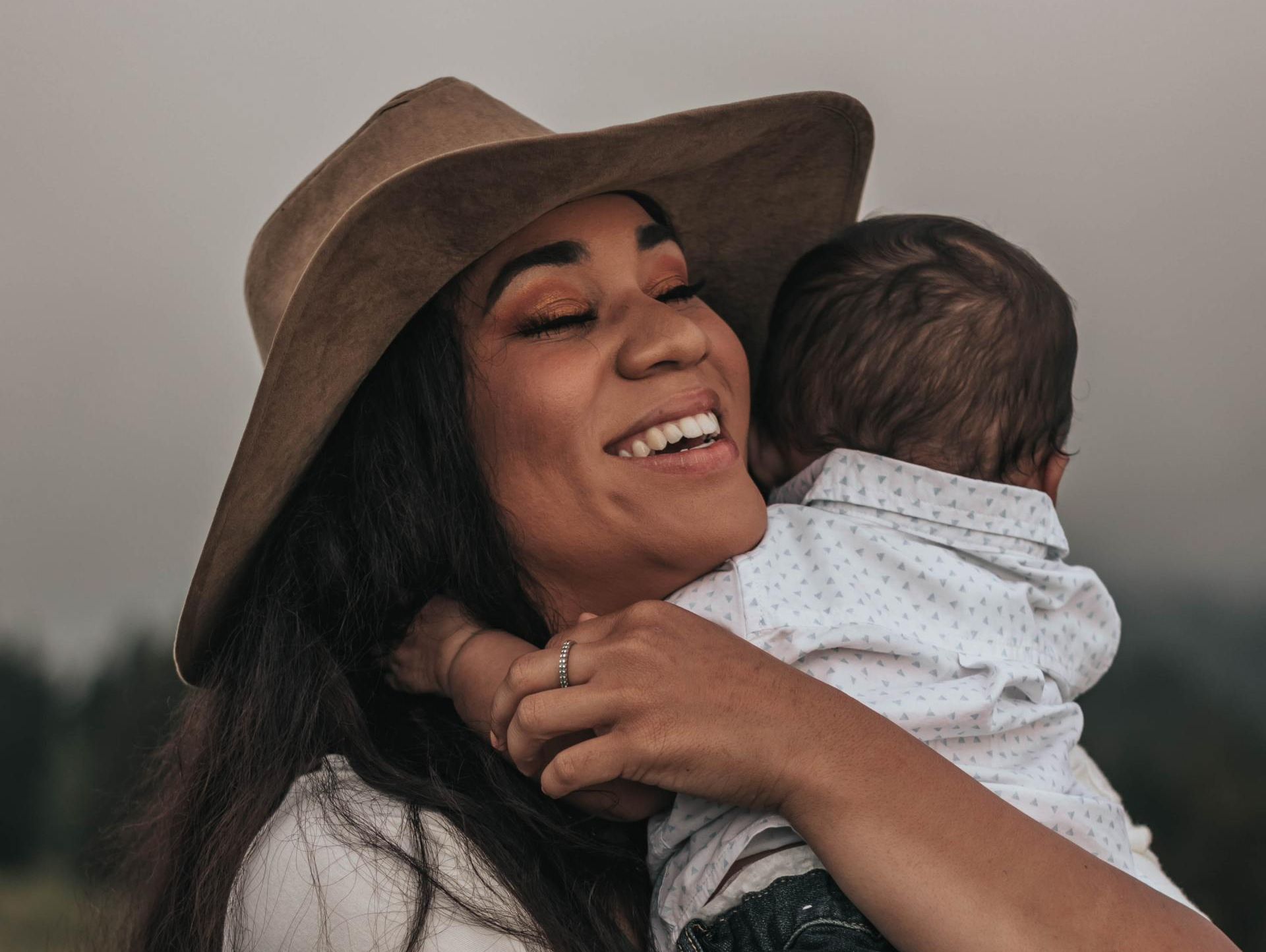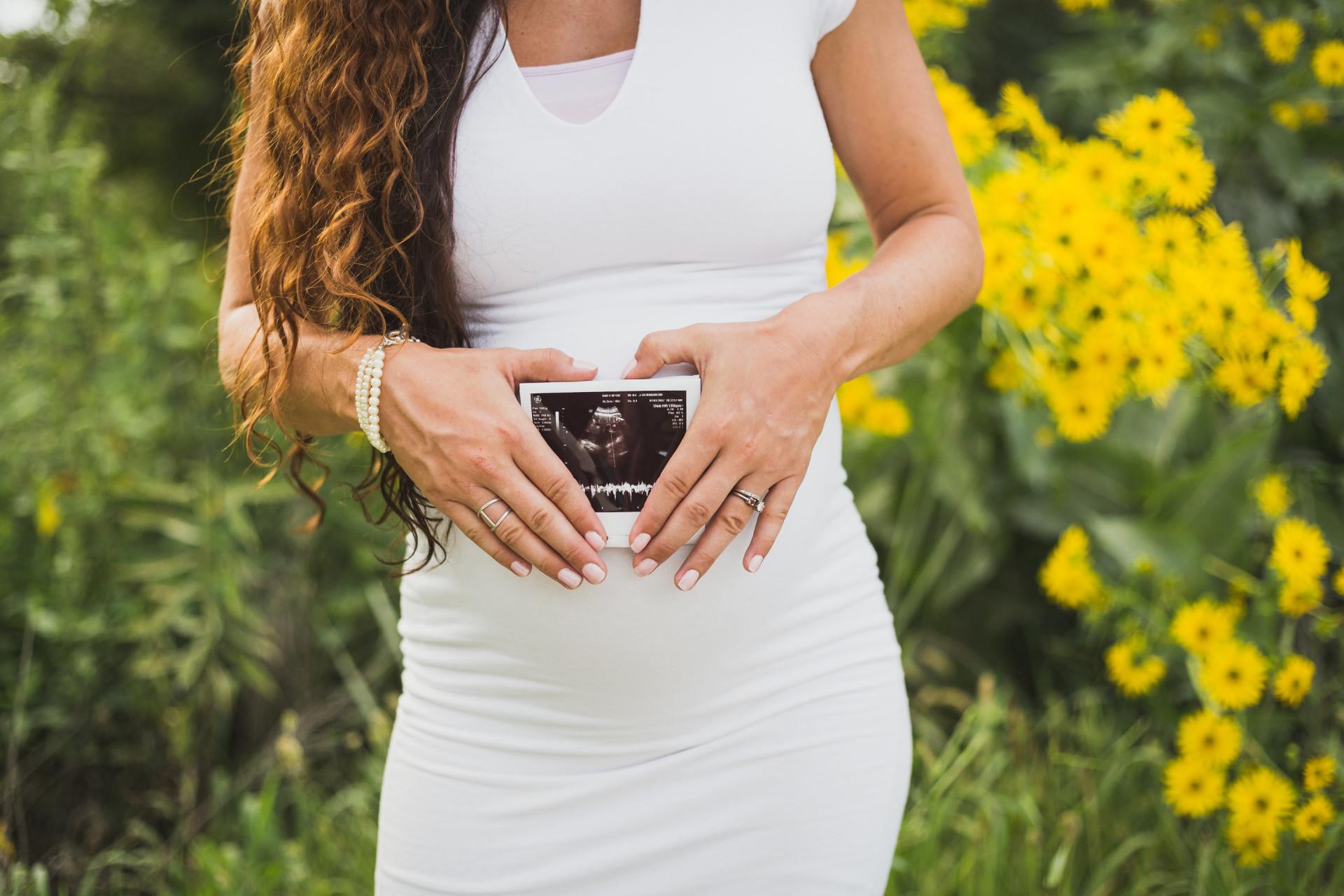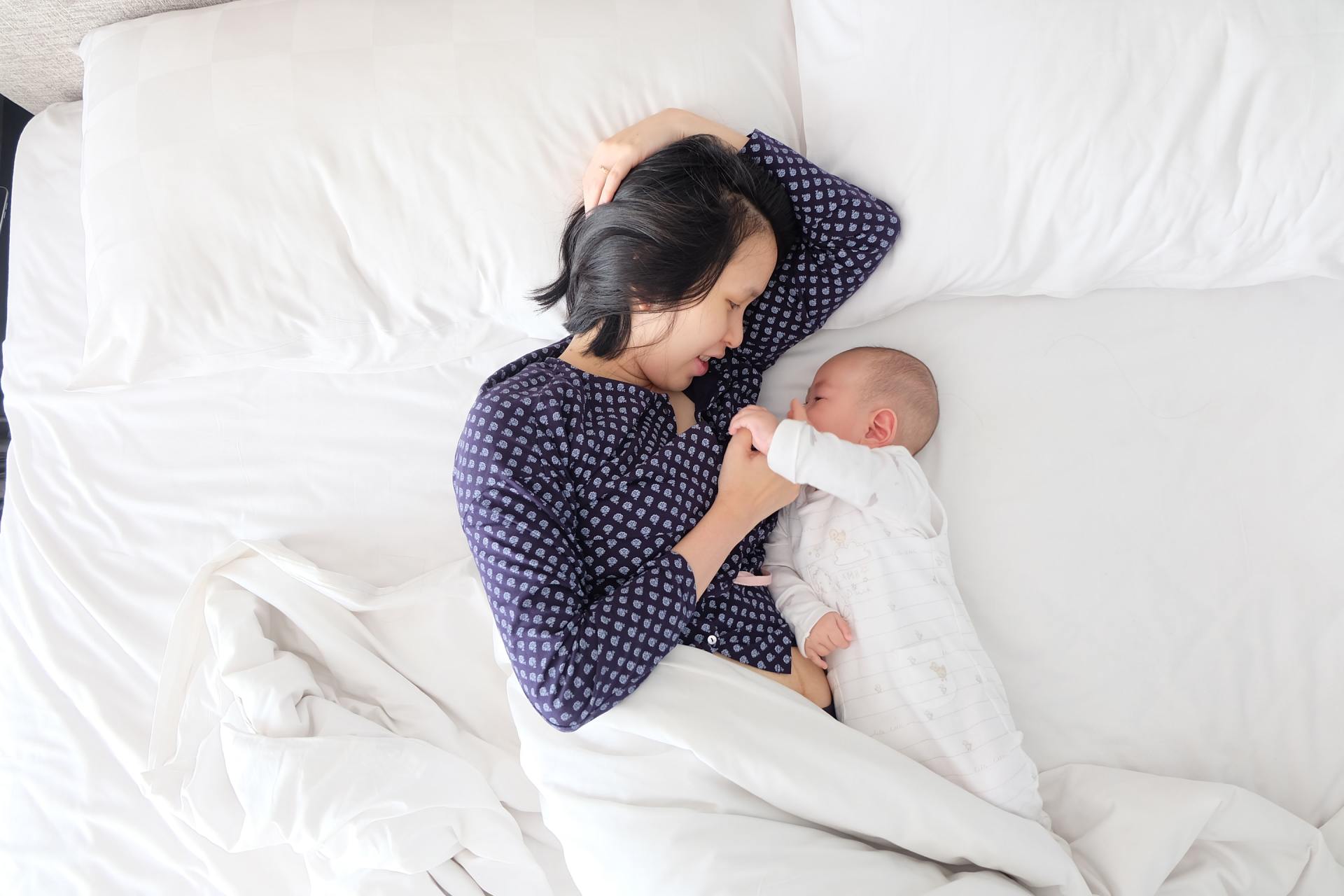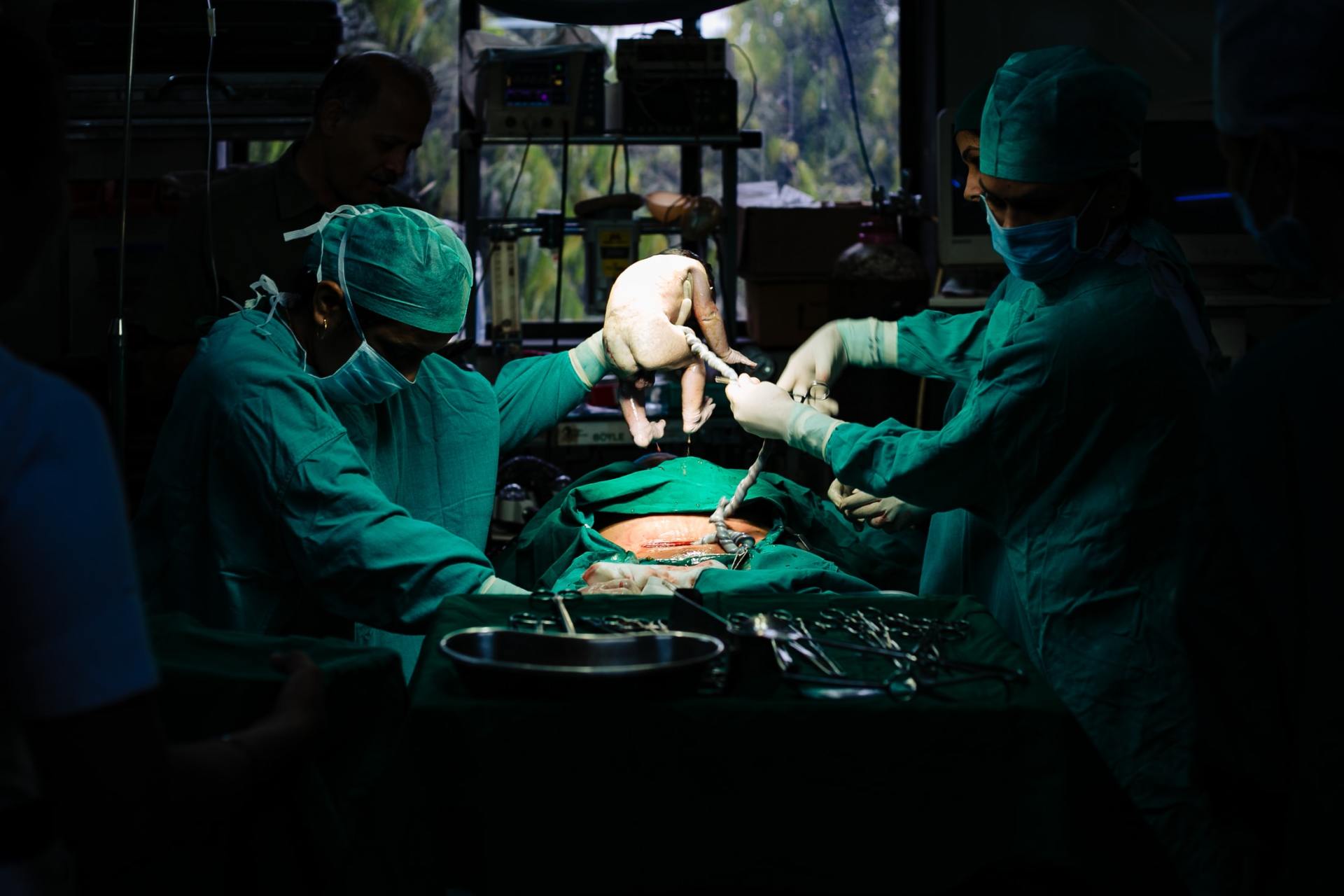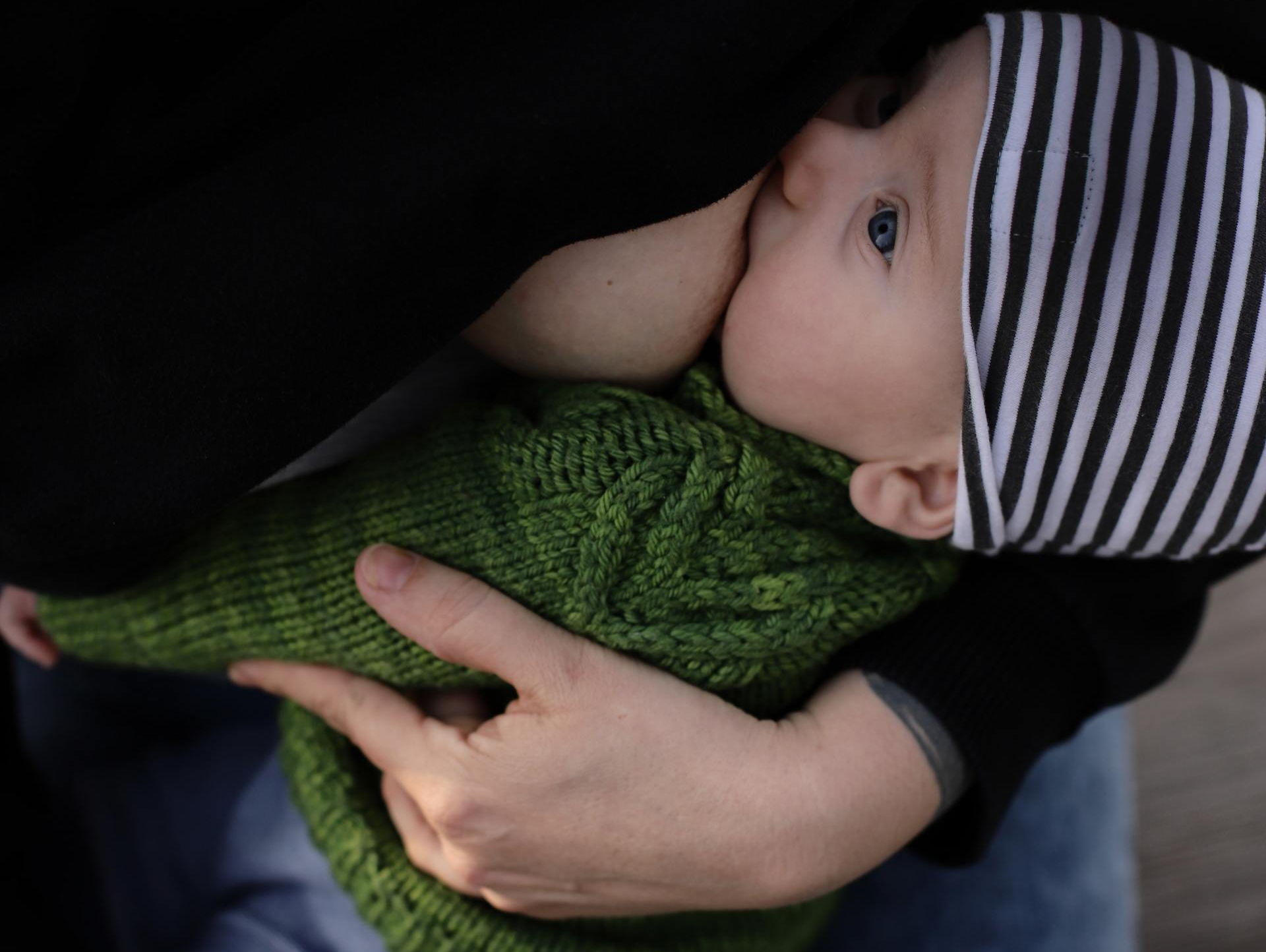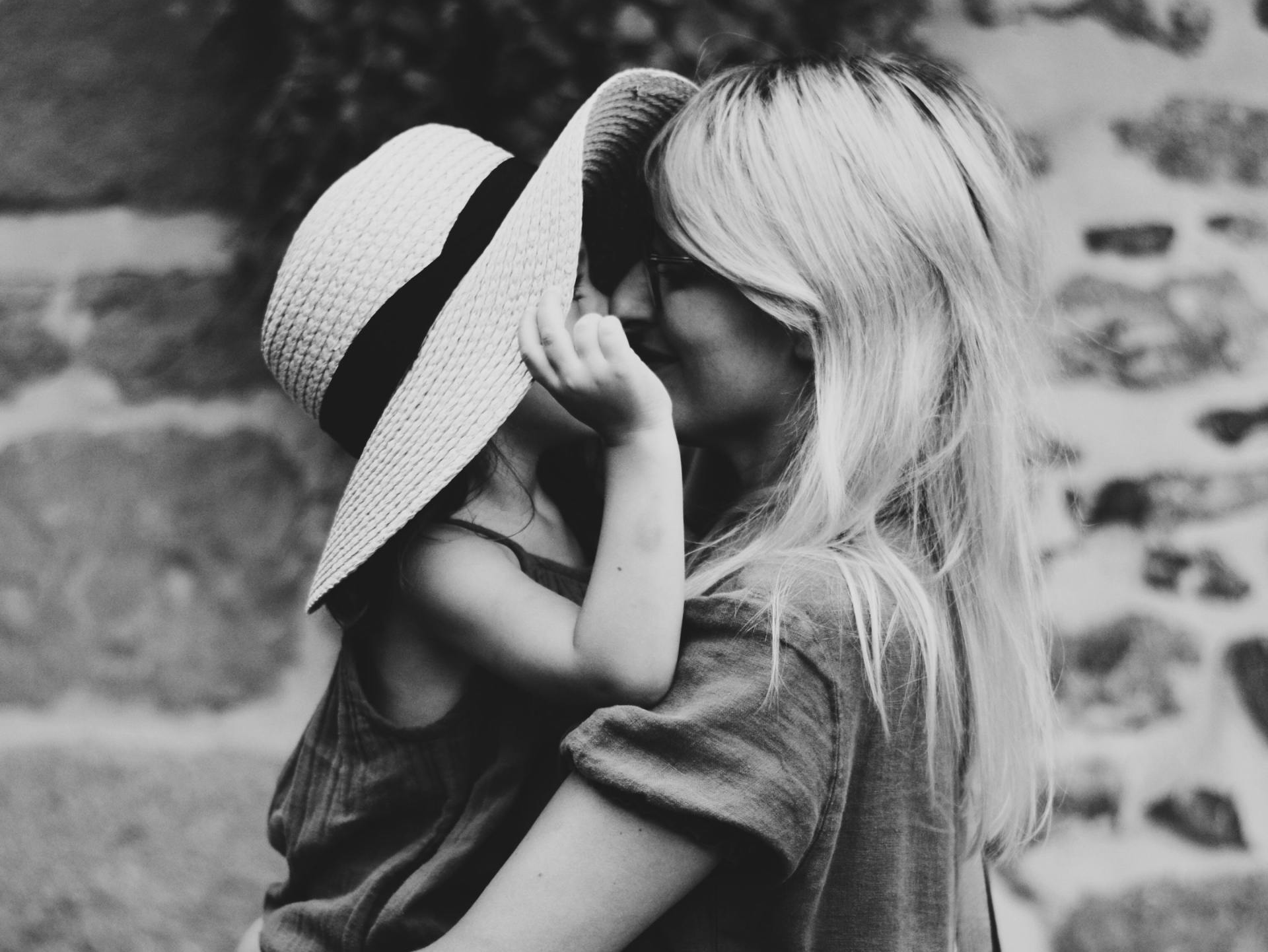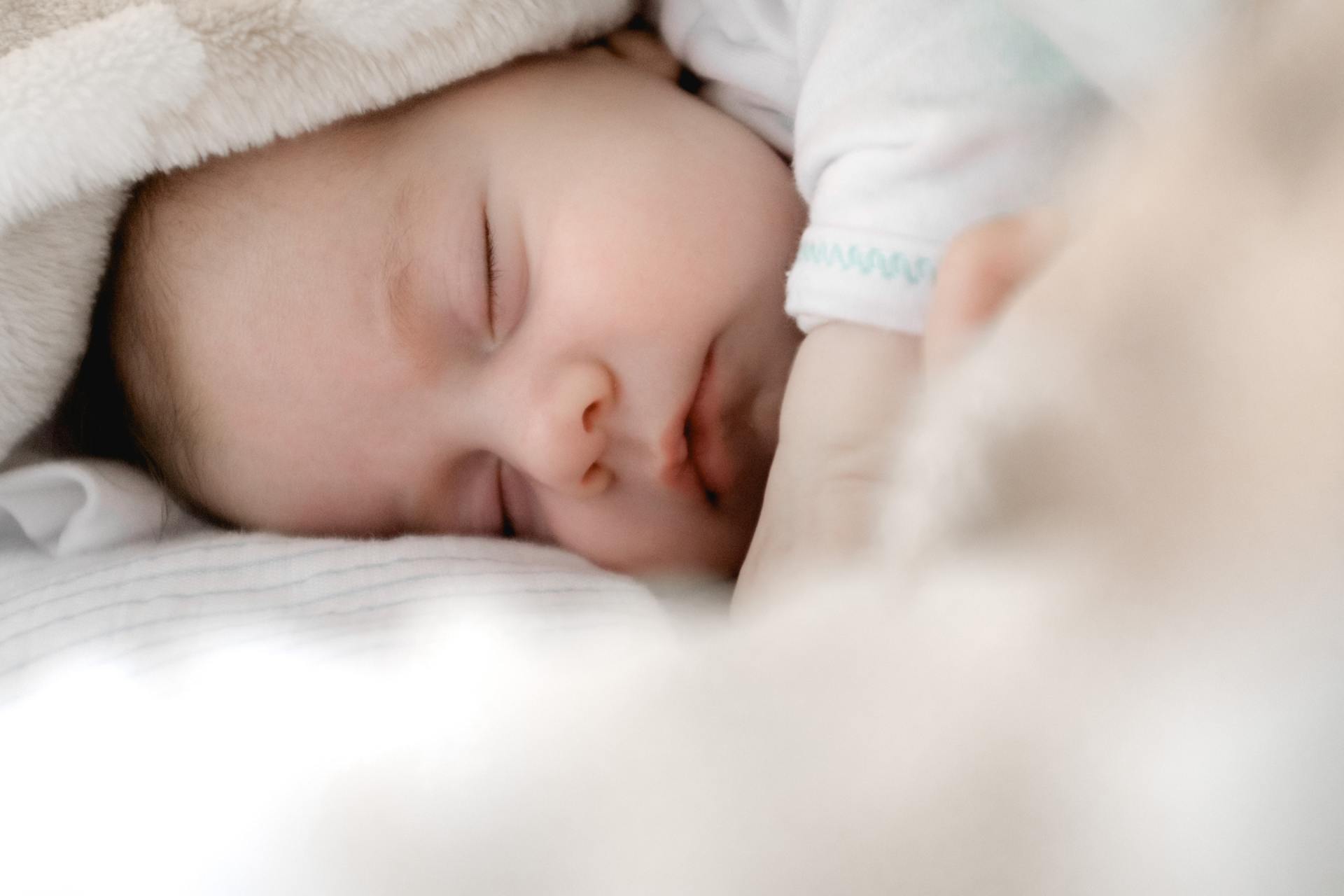The first time I saw my son was when I visited the hospital on the day he was born. My partner and I took a tube line which snaked its way under the Thames before spitting us out in South London. The hospital looked like a giant confection of white frosting atop a small green mound. We caught the lift to the maternity ward in silence.
My teenage sister-in-law struggled to breastfeed her son in the corner of the room. I did my best to help her by propping up his tiny head with the palm of my hand. I was the interloper. I hadn’t been there to witness those first flickering ultrasound images, his heartbeat as delicate as a feather. I hadn’t carried him within my body for months on end, waiting patiently for his arrival.
Through the window I could see the rest of London stretching into the distance, far away and out of reach. I was on the edge of something but didn’t quite know what it was. The other babies screamed and gurgled and mewed. He was silent, his bright eyes a beacon of calm amongst the chaos. Even the nurses commented. He’s been here before, hasn’t he? I’ve told him about this moment many times and it has become part of his origin story. How in the beginning he was the quiet, placid baby and I was his aunt cradling him in the hospital.
The vista of the new baby and proud family in the hospital room is normal, palatable. But the reality is more fragmented than that. A baby boy was born to a young mother in London and placed in foster care seven months later. Family members were assessed for their suitability as carers: maternal grandparents, an uncle and his Australian wife—me. For over a year the baby waited in limbo as decisions about his life played out in the family court. Our son finally came to live with us almost two years after that morning in the hospital.
I’m aware that we tell ourselves stories in an attempt to make sense of life and its messiness, fraught with so many variables. This is the power of a story. But if the narrative is this fractured in my mind, how confusing must it be for my son? Does it stab at his memory, all shards and sharp edges; or is it out of focus, forever beyond his reach? Where can we look to see our family reflected back to us? There are films, books and television shows about families made through adoption. But overwhelmingly they carry a shallow arc of redemption that romanticises the adopted child. Popular culture is so filled with adoption that it ceases to be part of the story: Spiderman, Superman, Dorothy, Harry Potter, Princess Leia and Luke Skywalker were all adopted. The narrative of adoption is one of benevolence and neat endings, of the saviour and the saved. That doesn’t reflect our story. The only neat endings in life occur when something is pushed out of sight.
My baby sleeps, cocooned in the cot that sits snug in the corner of the room, soft curls corkscrew from his skull. One sock has been playfully pulled off and stuffed down between the wall and the bedding, a habit he will have for years to come.
I watch over him. How is it possible that I know so little about my own child? One day his dreams, quirks and fears will be as familiar to me as the sureness of my breath. But in this moment, I don’t know any of this, can’t quite grasp it clearly. Those stories live only in the landscape of my imagination.
What was lost feels enormous, it has no borders. With the baby came a red book of medical records, a single page of typed notes and a small photo album. The medical records are blank in some areas, so I don’t know when he took his first step or got his first tooth. The typed notes are sparse, telling us to give him an extra bottle at midnight and that his favourite TV show is Peppa Pig. But so many things are left out, including that he didn’t like to be held when he went to sleep. The photographs span the time he spent in foster care: his first birthday, first Christmas, picnics in the park and visits to playgroup. I don’t know who many of the people in the photographs are, so I can’t tell him who he spent his first birthday with. He has a favourite teddy and a blanket, but I don’t know who gave them to him. Looking at these photographs, I see that my son’s eyes are haunted.
Not long after I became a mother, I spent a night out at an East London pub with friends from work. I hadn’t been out with them since the adoption. The banter around the rickety table was awkward. It was obvious I’d changed. I didn’t have a tiny baby who had entered my world largely unencumbered. I arrived at the pub with extra baggage and found it hard to make small talk.
It was May and we sat outside, so that the smokers could light up freely. Even though summer was fast approaching, we huddled close together with our coats on. A friend’s new boyfriend came back from the bar and tried to join our conversation. So you had a child the easy way? A wave of something hot passed through me: a mixture of anger and shame. My friends didn’t say anything. It was all new territory for them.
This is a conversation that has been mirrored over the years—at dinner parties, school pick-up and shopping centres. By friends, other parents and strangers. For some people, the questions never get old. Didn’t I want a child who looked just like me? Didn’t I want my own child? Could I even have my own children? This concept, the very idea of owning a child, was dangled in front of me like the pinnacle of authentic motherhood. Part of the identity tied to motherhood is the narrative that carrying and giving birth to a child is the experience that sets you up for life as a mother. I can’t say what it is like to give birth to my own child, and it is an experience that I may never know.
The conversations also made me question whether I was good enough to be the saint that adoptive mothers are meant to be. Could I recognise and understand the trauma behind the attachment disorders, language delays, night terrors and possible learning difficulties? When people told me I was doing a good job (which happens even to this day: you are so good with him) I questioned their intentions. Would they say this if I was his biological mother? Would they say this to the other parents at the school gate?
I think back to the beginning of us, me and him. We are waiting for a bus, trying to go somewhere, to get out of the house. I have no idea how to get his clunky pram onto a heaving London bus, no idea where I should take an almost two-year-old or what exactly I should be doing to fill the seemingly endless expanse of time.
My child looks nothing like me, so I get a lot of attention. Especially from people who think they have it figured out: I am his nanny, his foster carer, his father’s new girlfriend—never his mother. I ignore the curious glances and comments and wait for the bus.
He places his hand in mine, and the loss beats heavy in my chest. At night I wake from dreams that sweat with horrible anticipation. I see my son falling over the edge of a cliff or running in front of a car. How quickly I could lose grip of his tiny hand.
The greatest thing we lose by leaving people out of the dialogue on motherhood isn’t just that a diversity box hasn’t been ticked or a quota hasn’t been met. What we lose lies in the denial of the creativity and vitality that diversity of story brings to the arts and wider society. These are the voices that press against the fabric of cultural expectation and adds to the richness of story. The barriers we face as outsiders both hinder and enhance our creativity. Writing, storytelling and the arts are perfect vehicles for representing a multiplicity of voices and for creating empathy and understanding. There are new stories waiting for us, if we make space for them.
The strongest link I have with my son will always be based on narrative, not genetics. Friends and strangers remark on our subtle similarities, that we have the same eyes or smile. What they really see is that we have the same expressions and mannerisms. We have been so shaped by story and memory that we mirror each other. We are a family because it was written so. Because of child protection reports, the issuing of a new birth certificate and a chain of emails that crisscrossed between a network of social workers. I even wrote my name into his by interweaving my surname into his birth name.
Writing this story is a kind of alchemy: it carries with it the power to transform. I write my way back to when I first held my son in that hospital room overlooking London. With my words I map our memories and wrap him in them, so he will never forget. I remember it all, and I write it down. Until here we are: I am at the centre of his story and he is at the centre of mine.
